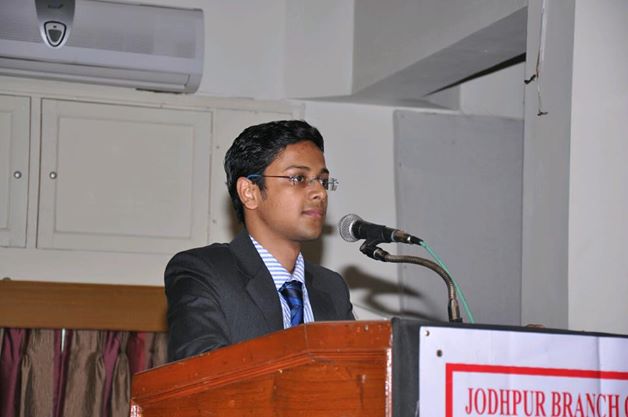| Article Section | |||||||||||
|
Home |
|||||||||||
Levy and Exemption under GST - supply of goods or services or both |
|||||||||||
|
|||||||||||
Levy and Exemption under GST - supply of goods or services or both |
|||||||||||
|
|||||||||||
1. Background GST is a comprehensive VAT on the supply of goods or services or both. All goods and services will be subject to GST unless specifically exempted i.e. operating on negative concept. It is a tax on supply of goods or services or both except taxes on supply of the alcoholic liquor for human consumption”. Draft Goods and Service Tax Act 2016 was released few days ago. The relevant provisions related to levy and collection of GST are discussed hereunder. 2. Levy This act proposed to levy tax which may be called as CGST or SGST on all the intra-State supplies of goods or services or both. The rate of tax will be applicable as per the categorisation and classification to be prescribed. The CGST or SGST shall be paid by every taxable person in accordance with the manner provided in the law. Further special categories of persons will be notified who are required to pay tax on reverse charge basis. [Section 7] 3. Compound levy In the erstwhile law related to indirect taxation the system of compound levy was available in State laws only. In the central indirect tax law compound levy was restricted to a very limited extent and applicable on the limited products say one or two. In this model GST law the compound levy scheme is proposed to be introduced for all the persons in general. The proposed compound levy scheme provides the that all assessee subject to assessees liable to pay tax under reverse charge would be having an option to pay tax at such rate as may be prescribed but not less than one percent. Further, this scheme is available only to the assessees who are not affecting any inter-state supply of goods or services. Another point to note is that if the assessee with the same PAN number is having multiple registrations than it had to exercise this compounding option in all the registrations. Assessee was restricted to collect this tax from the recipients on supplies made by it. Assessee would also not be eligible for input credit. 4. Taxable person Unlike earlier law, there is a separate section defining the meaning of the term ‘taxable person’. Taxable person means a person who carries on any business at any place in India or respective state and who is required to be registered under Schedule III of this Act. Following are the persons who are required to be compulsorily registered under this act:- (a) Persons making inter-state supply, irrespective of any threshold limit (b) Casual taxable persons, irrespective of the threshold specified (c) Persons who are required to pay tax under reverse charge (d) Non resident taxable persons (e) Persons who are required to deduct tax under section 37 (TDS) (f) Agents (g) Input service distributor (h) Supply of goods or services through electronic commerce operator, other than branded services (i) Every electronic commerce operator (j) Aggregator who supplies service under his brand name or his trade name (k) Other notified persons In the situation other than above– (l) Suppliers liable to be registered where it makes a taxable supply of goods of services if its aggregate turnover in a financial year exceeds ₹ 9 lacs. (m) Supplier liable to be registered where it makes a taxable supply of goods of services if its aggregate turnover in a financial year exceeds ₹ 4 lacs. (for NE states including Sikkim) (n) Persons who were already registered under the earlier law subject to point (l) and (m) above. (o) Transferee in case where business is transferred. 5. Not considered as taxable persons The following persons will not be considered as taxable persons for the purpose of this act – (a) Employee providing service in the course of employment (b) Person engaged in the business of exclusively supplying goods and / or services that are not liable to tax. (c) Person liable to pay tax under reverse charge – if receive services upto prescribed limit in a year for personal use, other than for use in the course or furtherance of hi business. 6. Exemption Central government in the interest of public can give exemption to supply of goods or services subject to certain conditions s may be notified. 7. Remission of tax on supplies Central government may by rules provide for remission of tax on such supplies which are found to be deficient in quantity due to natural causes. Further any limit in reference to amount of percentage could also be fixed by the government. This is just for your reference. It does not constitute our professional advice or recommendation.
By: CA Akash Phophalia - June 17, 2016
|
|||||||||||
| |
|||||||||||
 9911796707
9911796707

